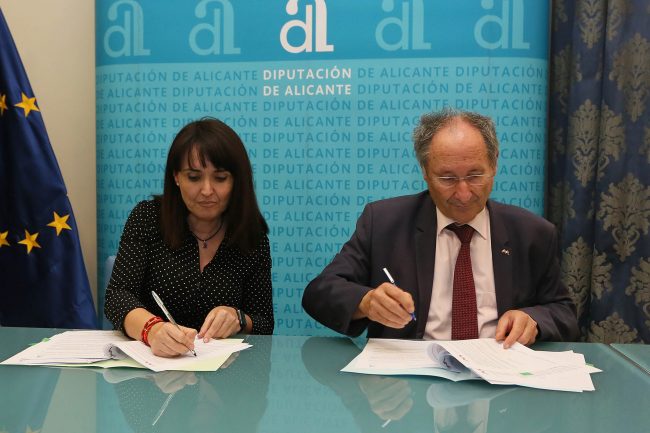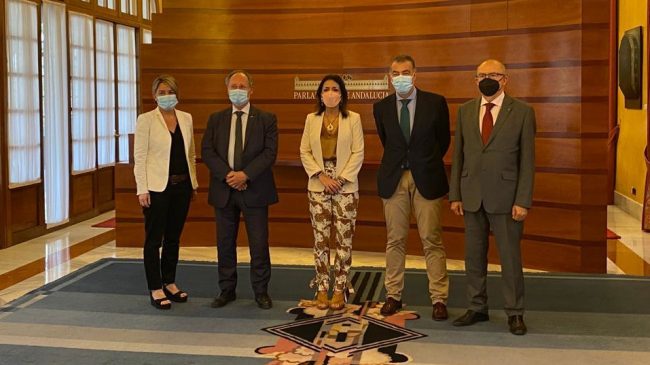The Alicante Provincial Council and the Agency sign a collaboration protocol to prevent corruption and defend public integrity
Alicante. May 24, 2022.- The Alicante Provincial Council and the Agency have signed a collaboration protocol with which the development of joint projects begins. The document has been signed by the first vice president and deputy for the transparency area, Julia Parra, and the director of AVAF, Joan Llinares.
The first action to be implemented as a result of this protocol will be to set up an external complaints mailbox that could be operational within two months. Work has already begun on this new resource that will be accessible from the Diputación’s electronic headquarters and also through the Transparency Portal (https://abierta.diputacionalicante.es/).
This tool is mainly aimed at the strategic areas of hiring, subsidies and access to the public function, which includes different profiles such as contractors, applicants for public aid or participants in personnel selection processes. The channel complies with the new applicable regulations and will allow any third party, and also any employee, to file complaints with guarantees and while maintaining their anonymity, so that an impartial body can resolve their claim.
In a later phase, the Diputación’s Transparency area will implement the internal complaints channel, for which collaboration with AVAF will also be sought. This second initiative, which will be put into operation next year, is aimed at Provincial Council employees with the aim of implementing mechanisms to guarantee public integrity. It is also planned to develop other projects such as a code of ethics for the staff of the Provincial Council.




